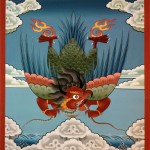Keeping a record of almost lost tongues
Bhutan Oral Literature and Language Documentation Projects: A documentation project is underway to preserve the unique local dialects and languages of Bhutan.

Titled ‘Bhutan Oral Literature and Language Documentation Projects (BOLDP)’, it began in 2010 but was formally launched last year, after approval from the government.
A researcher of the Linguistics School of Culture, History and Language of ANU College of Asia-Pacific in Australia, Gwendolyn Hyslop, in collaboration with Dr George N Appell and Charity Appell McNabb, are spearheading the project.
Gwendolyn Hyslop said most of the dialects in Bhutan are in danger of disappearing, and evidence of it abounds while listening to a Dzongkha conversation in Thimphu, where one hears half of the language replaced by Hindi, English, Nepali or classical Tibetan words.
“In a remote village in the Black Mountains, there are only one or two people left who speak their mother tongue, and, likewise, throughout the country, minority languages are very quickly being abandoned,” Hyslop said.
Gwendolyn Hyslop also said that unique cultural knowledge is also at the threat of being lost. “The Oleps in Rukha, Wangduephodrang, used to have a rich system of subsistence with the local land that involved special ways of leeching poison from tubers, and cultivating almost ten varieties of rice that are no longer found elsewhere in Bhutan, or perhaps anywhere in the world. In the east, many villages have local practices for dyeing and treating yarn to be used in weaving.”
She said that, although there are local words for such practices, there is no way to translate the word into Dzongkha or English. “As the languages in these regions are lost, so too is the wealth of unique cultural knowledge that was intrinsic in them,” Hyslop said.
So, the project will help to document the languages and oral traditions.
BOLDP have ongoing projects to collect, archive, transcribe and translate oral literature like Olekha, where a team is collecting oral literature from villages of Rukha, Riti, Jangbi, Wangling, and Phumzur, Dzongkha from Sha region and Dakpakha in Trashiyangtse.
By Tashi Dema in Kuensel
Connect to the project with Facebook here